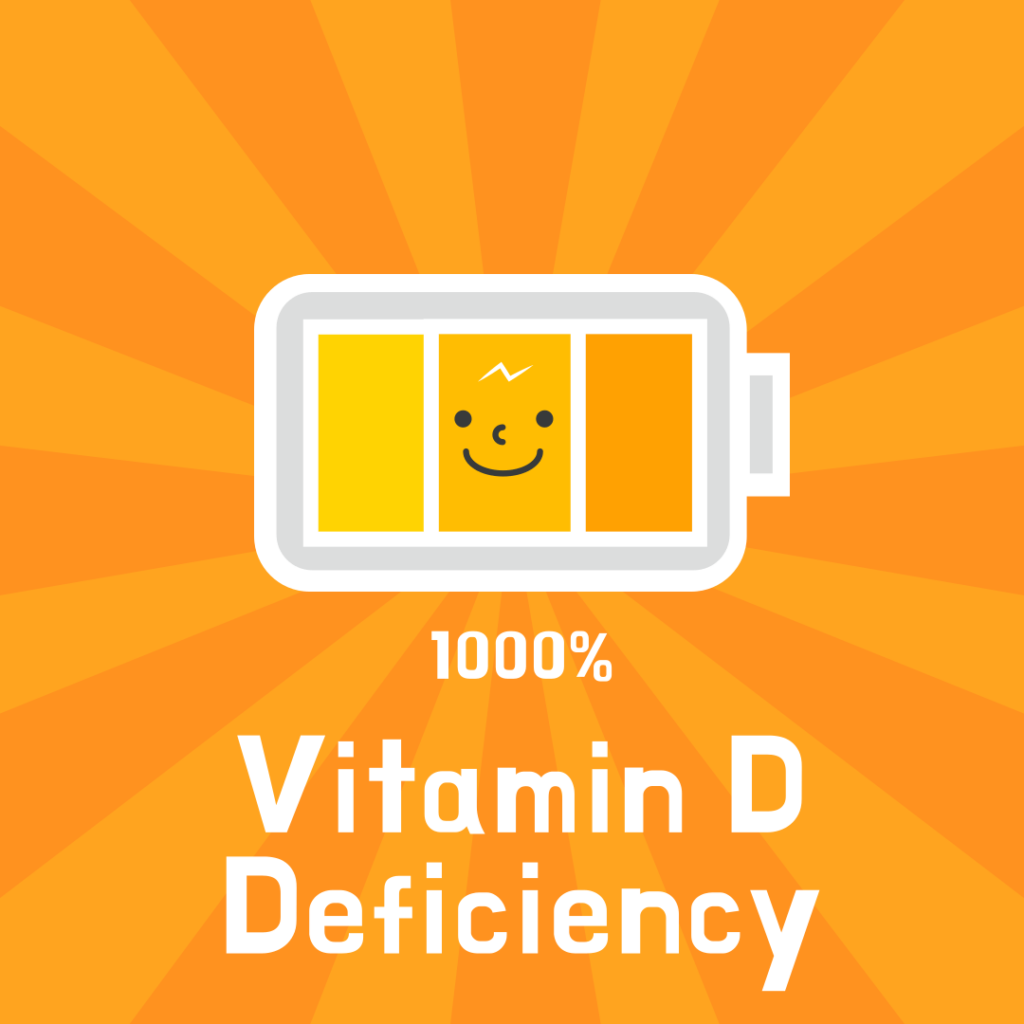
[ Vitamin D Deficiency ]
Vitamin D is essential for maintaining optimal health, yet many people, including Koreans, often lack adequate levels. This deficiency is primarily due to indoor living, irregular eating habits, and environmental factors.
As awareness of vitamin D’s importance grows, more people are seeking information on how to consume it properly and understand its effects. Vitamin D supports bone and muscle health and strengthens the immune system, making it vital to our overall well-being.
However, too little or too much can lead to various health issues. This blog delves into the symptoms, causes, and recommended daily intake of vitamin D deficiency.
Vitamin D Deficiency Levels
Vitamin D levels are typically measured in nanograms per milliliter (ng/mL) of blood. Here’s how to interpret these levels:
✅ 20 ng/mL: Deficient
✅ 20-30 ng/mL: Insufficient
✅ 30-100 ng/mL: Normal
Maintaining a level between 30 and 100 ng/mL is considered optimal for health. Levels below 20 ng/mL indicate a deficiency that can lead to various health problems.
Symptoms and Causes of Vitamin D Deficiency
Symptoms
If you are deficient in vitamin D, you may experience several symptoms that can easily be overlooked but significantly impact your quality of life if left untreated. Common symptoms include:
✅ Fatigue: Persistent tiredness and a lack of energy.
✅ Muscle Pain: Discomfort and soreness in muscles.
✅ Bone Weakness and Pain: Fragility and aching in bones.
✅ Depression: Mood changes and feelings of sadness or hopelessness. Severe
vitamin D deficiency can lead to more serious health issues such as osteoporosis, characterized by brittle bones, and rickets, a condition that affects bone development in children.
Causes
Several lifestyle and environmental factors contribute to vitamin D deficiency:
✅ Lack of Sunlight Exposure: Modern lifestyles often limit exposure to sunlight, crucial for the synthesis of vitamin D in the skin. Using sunscreen and spending time indoors further reduce the body’s ability to produce vitamin D.
✅ Dietary Habits: Irregular and unbalanced diets lacking foods rich in vitamin D can lead to deficiency. Busy lifestyles often lead to poor nutritional choices, exacerbating the problem.
✅ Geographical Location: Living in areas with limited sunlight, especially during winter months, can result in lower vitamin D levels.
✅ Age: As people age, their skin’s ability to synthesize vitamin D decreases, and their kidneys become less efficient at converting vitamin D into its active form.
Recommended Daily Intake of Vitamin D
To maintain adequate vitamin D levels, it’s crucial to understand the recommended daily intake. The American Society of Nutrition suggests a safe daily intake of up to 4,000 IU (international units) for adults aged 12 to 75, pregnant women, and lactating women.
While individual needs may vary, this upper intake limit is considered safe for most people.
✅ Upper Intake
Limit Adults (12-75 years), Pregnant and Lactating Women: Up to 4,000 IU per day
It’s important to note that excessive vitamin D intake can lead to toxicity, so adhering to recommended guidelines is essential.
Choosing the Right Vitamin D Supplement
When selecting a vitamin D supplement, consider the following factors to ensure you’re getting an effective and safe product:
✅ High Enough Content for Safety
Ensure the supplement provides a sufficient amount of vitamin D to meet your daily needs without exceeding the safe upper limit.
Research published in the Annals of Epidemiology indicates that consuming 4,000 IU of vitamin D daily leads to a steady increase in blood levels, showing effective absorption and utilization.
✅ D3 Form for Better Absorption
Vitamin D comes in two forms: D2 and D3. Vitamin D3 is more effective at raising blood vitamin D levels due to its higher absorption and utilization rate in the body.
A study published in The American Journal of Clinical Nutrition found that consuming vitamin D3 led to more than twice the increase in blood vitamin D levels compared to D2.
Therefore, choosing a supplement with vitamin D3 ensures better effectiveness.
Conclusion
Vitamin D plays a crucial role in maintaining bone health, muscle function, and a robust immune system. Understanding the symptoms and causes of vitamin D deficiency helps identify and address the issue effectively.
Ensuring an adequate daily intake through proper diet, sun exposure, and supplements, particularly those with vitamin D3, is essential for overall health.
By taking proactive steps to maintain optimal vitamin D levels, you can enhance your quality of life and prevent various health issues associated with deficiency.
For more information on maintaining healthy vitamin D levels and choosing the right supplements, consult with healthcare professionals and refer to trusted sources.
Maintaining a balanced diet and lifestyle will go a long way in ensuring your body gets the essential nutrients it needs.
